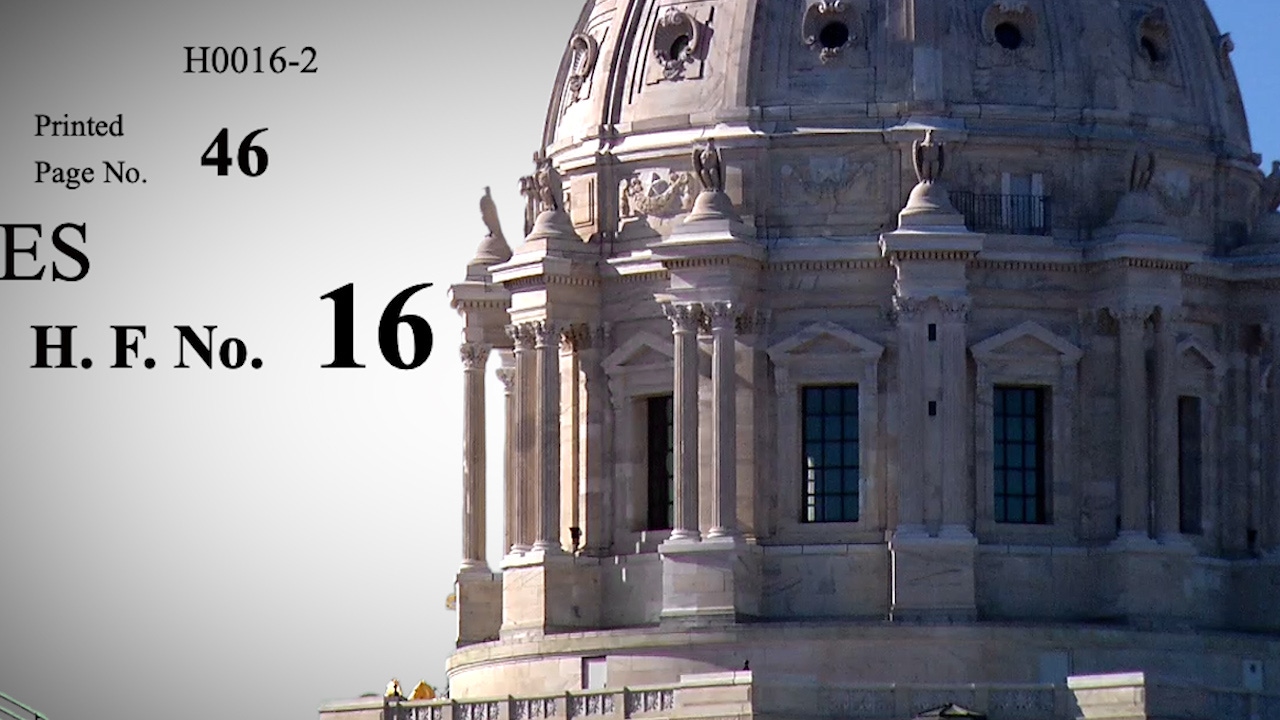‘Conversion therapy’ ban again headed for vote in Minnesota House
The Minnesota House of Representatives yet again is poised to vote on banning “conversion therapy,” a label given to a variety of methods used in attempts to change someone’s sexual orientation or gender identity.
This is at least the fourth time in the last five years state lawmakers have proposed such legislation.
House File 16, placed on the General Register after it was adopted Wednesday by the House Commerce Finance and Policy Committee, would ban the practice specifically by mental health professionals for children and vulnerable adults.
Kat Rohn, executive director of LGBTQ+ advocacy organization OutFront Minnesota, spoke in favor of the ban during all three committee hearings in the last month.
“So historically, conversion therapy involves a whole range of really harmful practices, including things like electroshock therapy and you know, induced nausea and things like that,” Rohn told 5 EYEWITNESS NEWS Sunday.

“These days, that has shifted somewhat. While we still see that on rare occasions, a lot of it is sort of talk therapy.”
Method aside, conversion therapy — as the bill defines it — comes with the intention of changing someone’s sexual orientation or gender identity.
About 4% of LGBTQ youth in Minnesota have experienced conversion therapy during their lifetimes, and another 11% have been threatened with the practice, according to the Trevor Project’s “2022 National Survey on LGBTQ Youth Mental Health.”
“It’s becoming increasingly rare, but the harm is real for the folks who have endured it,” Rohn said.
In Wednesday’s testimony, a third-year University of Minnesota medical student shared the story of a friend sent away to conversion therapy.
“It was obvious to everyone that the Steve we knew was truly gone. In his place was this child who was drowned in self-loathing and self-hate,” they said, using an alias to share their friend’s story.
“And a year later, Steve tried to take his own life.”
A review by the Minnesota Department of Health concluded in 2022 that while studies are limited, conversion therapy is “neither effective nor harmless” and has “strong associations” with adverse effects, including anxiety, depression and suicide.
The report was created as part of an executive order signed by Gov. Tim Walz in 2021 that restricted the accessibility of the practice.
Bans like the proposed state law already exist in several Minnesota cities, including Minneapolis and Duluth. Twenty other states and Washington D.C. ban conversion therapy for minors.
Two dissenters in testimony Wednesday said they’re thankful for having received the therapy.
“I oppose this bill. As an adolescent, I experienced same-sex attractions,” one said before lawmakers.
“Knowing that homosexual practice was inconsistent with my religious faith, I chose to explore my options with the help of qualified mental health professionals and pastoral caregivers.”
“I was not forced, I was not coerced and I was not abused,” the person continued.
Rep. Harry Niska (R-Ramsey) also expressed concern the bill could come with legal liability over First Amendment rights, including freedom of speech and of religion. It’s a concern that’s been raised since a state conversion therapy ban was first proposed in 2019.
“What’s added in section three to the existing bill is a bunch of language calling out a particular viewpoint or particular content as fraudulent,” Niska said Wednesday.
Niska referenced the final section of House File 16 that would also ban “misrepresentation” or “false advertising” of conversion therapy by “representing homosexuality as a mental disease, disorder, or illness, or guaranteeing to change an individual’s sexual orientation or gender identity.”
The bill’s next step is a vote on the House floor. A companion Senate File is scheduled for its first committee hearing Wednesday.
Follow the movement of major state legislation with KSTP’s new Minnesota Legislative Tracker.
Here is a list of suicide prevention and mental health resources:
- U.S. National Suicide Prevention Lifeline at 988 or 1-800-273-TALK (8255)
- Minnesota Department of Health’s Suicide Prevention Program
- Minnesota Department of Human Service’s adult mental health resources
- The National Alliance on Mental Illness (NAMI) – Minnesota
- Veterans Crisis Line at 1-800-273-8255, Press 1
- Minnesota Farm and Rural Mental Health Helpline at 833-600-2670, ext. 1
- Crisis Phone Line – In the Twin Cities metro area, call **CRISIS (**274747) from a cellphone to talk to a team of professionals who can help.
- Crisis Text Line – Text MN to 741741 to connect with a trained crisis counselor to receive free, 24/7 crisis support via text message.
If you believe someone is at risk of suicide, the U.S. Department of Health and Human Services suggests you:
- Ask questions about whether the individual is having suicidal thoughts.
- Call the U.S. National Suicide Prevention Lifeline at 988 or 1-800-273-TALK (8255).
- Seek help from a medical or mental health professional. If it is an emergency situation, take the person to a hospital.
- Remove any objects from a person’s home that could be potentially used in a suicide.
- Do not leave the person alone, if possible, until help is available.
The U.S. National Suicide Prevention organization has also compiled a list of resources to help with coping during the COVID-19 pandemic.